$400M to bolster digital equity statewide
| Published: 10-04-2023 4:31 PM |
GREENFIELD — With approximately $400 million in the pipeline for digital equity work across the state, the Massachusetts Broadband Institute is taking feedback that will inform plans to grow the availability of internet-connected devices, boost digital literacy and increase broadband access.
A statewide listening tour, which will conclude this week with a session in central Massachusetts, was held to gather feedback as part of a planning process that will result in developing a State Digital Equity Plan and five-year Strategic Broadband Action Plan, which aims to bring affordable, reliable high-speed internet to every home in Massachusetts. The listening sessions and planning process have been made possible thanks to federal funding through the Biden-Harris administration’s Internet for All Initiative.
“What we’re really looking at is what’s going to be approximately $400 million of investment coming down through various federal sources,” MBI Director of Program Development Josh Eichen said during a listening session in Greenfield on Tuesday afternoon. “What we’re doing tonight is … developing the ideas, solutions and implementation strategies we can use to make the best impact of these funds we will be receiving.”
Following the planning process, MBI will publish draft plans, likely in early November. The public will have 30 days to provide feedback.
“We want to know that we got it right or, if we didn’t, what we missed,” Eichen said.
Among those to attend virtually on Tuesday were residents and community leaders from New Salem and Hawley. Others met for the same but separate in-person presentation at the John W. Olver Transit Center. MBI representatives fielded questions about funding and human resources, particularly when it comes to working with municipal leaders on drafting digital access plans on the local level.
“I think [it would be helpful] if there was an MBI employee who was designated as the contact person for each of these communities so they’ve got a particular person they can talk to who can explain to them and members of their community what we’re trying to accomplish,” said Hawley resident Kirby “Lark” Thwing of the Florida, Hawley, Monroe and Savoy (FHMS) Broadband Network Committee.
There were also concerns about how these projects would be funded.
Article continues after...
Yesterday's Most Read Articles
“You noted the Berkshires and [Pioneer Valley] have the highest costs,” said Kathryn Soule-Regine, chair of the New Salem Municipal Light Board. “Part of that is because we had to borrow millions of dollars — each town did — … and it was the largest borrowing they had ever done. We’re still paying that back and we will be for some time.”
Eichen acknowledged that the match commitment is often more difficult for smaller communities.
“There is a 20 to 25% match between different infrastructure programs,” he responded.
Thwing said there are still parts of the four communities he represents that lack the ability to connect to the internet at all. According to a survey conducted by MBI, 26% of respondents reported that their internet service “is not good enough to meet their household’s needs.” Further, in Hawley, there were 217 unserved locations and in Warwick, there were 44 underserved locations.
As of September, 48 of the 53 Last Mile communities — a state program that provides funding for eligible towns to create municipally owned broadband networks — have networks that are fully functional, according to MBI. The remaining five towns — Florida, Hawley, Monroe, Savoy and Royalston — have partially operational networks and are expected to be completed in fiscal year 2024.
“Our focus at this point is a lot on helping the locals make use of the services,” said Soule-Regine of New Salem. “I think a lot of people are very much intimidated by what’s available to them, particularly the senior population, who stand the most to benefit.”
MBI’s survey can be found at tinyurl.com/MBISurvey1.
Reporter Mary Byrne can be reached at mbyrne@recorder.com or 413-930-4429. Twitter: @MaryEByrne.

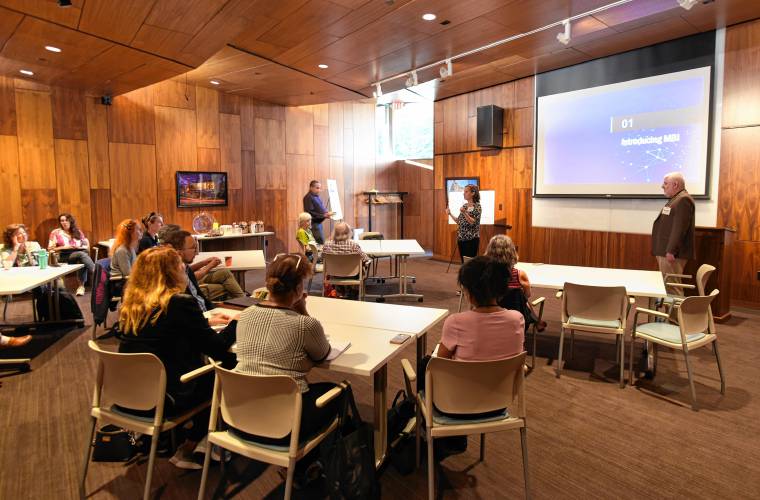
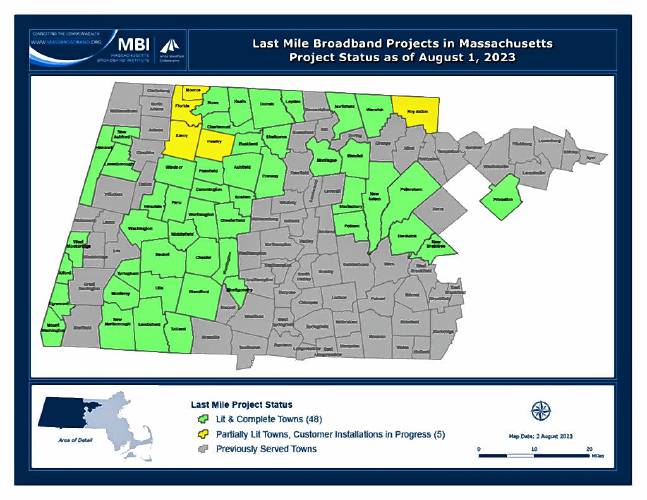
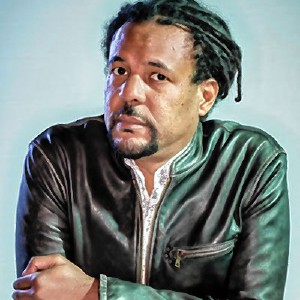 UMass graduation speaker Colson Whitehead pulls out over quashed campus protest
UMass graduation speaker Colson Whitehead pulls out over quashed campus protest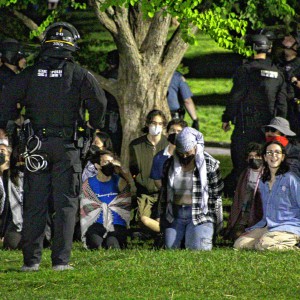 UMass student group declares no confidence in chancellor
UMass student group declares no confidence in chancellor Four Rivers Climate Club organizes litter cleanup, panel on environmental activism
Four Rivers Climate Club organizes litter cleanup, panel on environmental activism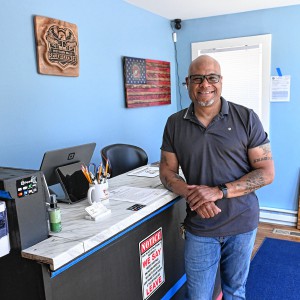 Retired police officer, veteran opens firearms training academy in Millers Falls
Retired police officer, veteran opens firearms training academy in Millers Falls
